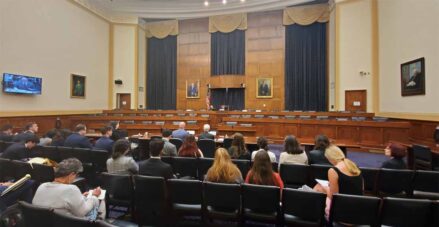In its most basic form, advocacy is simply support for a certain cause or policy. You see a problem in the world, and you begin to advocate for ways to address the problem. These problems can appear to be simple, like the unjust imprisonment of an innocent person, or highly complex, like resolving a decade’s long violent conflict between multiple communities.
Sometimes the solution can be straightforward, like when you just need to convince one key decision-maker to make the right decision. Other times, you might have to build an alliance of like-minded organizations who try to influence a wide range of entities connected via complex networks in differing social strata to move in the right direction at the right time towards a multi-faceted solution to a problem that may be international in nature and could be evolving on a daily or hourly basis. And if you think that last sentence was painful to get through, just wait until you try to actually organize one of those really complex advocacy campaigns.
At this point, an example might be helpful. Here is one:
In 2014, Sudan imprisoned and sentenced to death Mariam Ibrahim, a Christian woman, for the alleged crime of apostasy. She was innocent, but her case might have gone unnoticed if not for an initial press report by the World Watch Monitor. Even then, few outlets picked up the news. A Congressman in the U.S. House of Representatives read the report and reached out to an advocacy group for persecuted Christians. That group confirmed the information and helped draft a press release for the Congressman calling for the release of Mariam. At the same time, they worked with another advocacy group to launch a campaign for her release. The press release from the Congressman was picked up by a blogger for the New York Times and within days, an international campaign to pressure the Sudanese government to release Mariam had begun.
Mariam was eventually released and, along with her family, allowed to leave Sudan. If not for the advocates who raised the case, and worked for months to keep the campaign from being forgotten, Mariam may have languished in a Sudanese prison indefinitely, if not worse. In addition, the Sudanese government almost certainly became more reluctant to arrest and sentence others for apostasy in the future after the case of Mariam sparked international condemnation.
I love this example because it answers the next most common question about advocacy, which is, does it work? Yes, it does.
It also encapsulates what I love about advocacy, in that advocacy often addresses the problems that cannot be resolved in almost any other way. Barring sending in the “A-Team” to break Mariam out of prison (something that may have been considered by a few people) or a supernatural delivery (something that I certainly don’t deny the possibility of), the only way to secure Mariam’s release was to persuade those in power in Sudan to change course, and this had to be done through advocacy (and a healthy dose of prayer).



